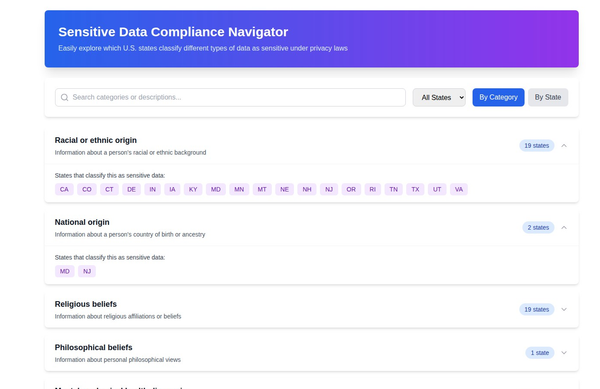Strengthening Your Cybersecurity Posture: Introducing Our Comprehensive Information Security Policy Packages

In today's digital landscape, organizations face an ever-growing array of cyber threats and regulatory requirements. To help businesses navigate this complex environment, we're proud to offer two comprehensive Information Security Policy (ISP) packages: our foundational Top 25 ISP Package and our advanced Additional 10 ISP Package. Together, these packages provide a robust framework for establishing and maintaining a strong cybersecurity posture.
Save 10% - Coupon Code: " compliancehubwiki "

The Power of 35: A Complete Information Security Policy Suite
Our combined offering of 35 tailored policies covers every critical aspect of information security, from acceptable use and access control to advanced topics like continuous improvement and secure software development. Each policy is carefully crafted to align with leading industry standards and regulatory frameworks, including:
- NIST SP 800-53 Rev. 5
- CIS Controls v8
- SANS Critical Security Controls
- ISO/IEC 27001
- PCI DSS
- HIPAA
- GDPR
Enhanced Compliance Matrix: 35 Information Security Policies
| Policy | NIST (SP 800-53 Rev. 5) | CIS Controls (v8) | SANS Critical Security Controls | ISO/IEC 27001 | Other Relevant Standards |
|---|---|---|---|---|---|
| 1. Acceptable Use Policy | AC-1, AC-2, AT-2 | Control 4.1 | Control 9 | A.7.2.3, A.8.1.3 | PCI DSS Req 12.3.1, HIPAA §164.308(a)(4)(ii)(B) |
| 2. Access Control Policy | AC-2, AC-3, AC-6 | Control 6.1, 6.2 | Control 4 | A.9.1.1, A.9.2.3 | PCI DSS Req 7, HIPAA §164.312(a)(1) |
| 3. Asset Management Policy | CM-8, MP-4, PM-5 | Control 1.4, 1.5 | Control 1 | A.8.1.1, A.8.1.2 | PCI DSS Req 2.4, 9.9, HIPAA §164.310(d)(1) |
| 4. Business Continuity/Disaster Recovery | CP-1, CP-2, CP-3 | Control 11.1, 11.2 | Control 8 | A.17.1.1, A.17.2.1 | PCI DSS Req 12.10, HIPAA §164.308(a)(7)(i) |
| 5. BYOD Policy | AC-19, CM-10 | Control 5.5, 6.2 | Control 13 | A.6.2.1, A.8.1.1 | PCI DSS Req 12.3, HIPAA §164.310(c) |
| 6. Change Management Policy | CM-3, CM-4, CM-9 | Control 11.5 | Control 10 | A.12.1.2, A.12.2.2 | PCI DSS Req 6.4, 11.2, HIPAA §164.308(a)(8) |
| 7. Cloud Computing Security Policy | SA-9, SA-10, SC-7 | Control 5.3, 14.2 | Control 15 | A.14.2.1, A.14.2.5 | PCI DSS Req 6.7, HIPAA §164.312(b) |
| 8. Compliance Monitoring/Enforcement | CA-2, CA-7, AT-4 | Control 17.1, 17.2 | Control 16 | A.18.2.3, A.18.2.2 | PCI DSS Req 12.6, HIPAA §164.308(a)(1)(ii)(D) |
| 9. Data Backup and Recovery Policy | CP-9, CP-10, MP-5 | Control 11.3, 11.4 | Control 7 | A.12.3.1, A.12.3.2 | PCI DSS Req 10.5, 12.10.5, HIPAA §164.308(a)(7)(ii)(A) |
| 10. Data Protection and Privacy Policy | MP-5, RA-3, SC-8 | Control 13.1, 13.2 | Control 17 | A.18.1.3, A.18.1.4 | PCI DSS Req 9.6, 12.3, HIPAA §164.530(c), GDPR Art. 5, 24 |
| 11. Email Security Policy | SC-5, SC-7, SC-12 | Control 9.2, 9.4 | Control 7 | A.12.2.1, A.13.2.3 | PCI DSS Req 1.1.7, 12.3.9, HIPAA §164.312(a)(2)(iv) |
| 12. Encryption Policy | SC-12, SC-13, SC-28 | Control 3.12, 13.4 | Control 13 | A.10.1.1, A.10.1.2 | PCI DSS Req 3.4, HIPAA §164.312(e)(2)(ii) |
| 13. End User Encryption Key Protection | SC-12, SC-13, SC-28 | Control 13.5, 13.7 | Control 13 | A.10.1.2, A.10.1.1 | PCI DSS Req 3.6, HIPAA §164.312(a)(2)(iv) |
| 14. Incident Response Policy | IR-1, IR-4, IR-8 | Control 17.4, 18.1 | Control 18 | A.16.1.2, A.16.1.3 | PCI DSS Req 12.10, 10.6.1, HIPAA §164.308(a)(6)(ii) |
| 15. Information Classification & Handling | RA-3, RA-5, SC-16 | Control 3.1, 13.5 | Control 13 | A.8.2.1, A.8.2.2 | PCI DSS Req 9.7, HIPAA §164.312(e)(2)(ii) |
| 16. Mobile Device Security Policy | AC-19, SC-18, MP-7 | Control 5.5, 6.2 | Control 15 | A.6.2.1, A.11.2.6 | PCI DSS Req 12.3.8, HIPAA §164.310(d)(2)(iii) |
| 17. Network Security Policy | SC-7, SC-8, AC-17 | Control 1.1, 1.2 | Control 11 | A.13.1.1, A.13.1.3 | PCI DSS Req 1.1, 11.4, HIPAA §164.312(a)(1) |
| 18. Password Management Policy | IA-5, IA-2, AC-2 | Control 5.4, 16.2 | Control 16 | A.9.2.4, A.9.2.5 | PCI DSS Req 8.2, HIPAA §164.308(a)(5)(ii)(D) |
| 19. Patch Management Policy | CM-3, CM-4, SI-2 | Control 7.1, 7.3 | Control 3 | A.12.6.1, A.12.5.1 | PCI DSS Req 6.2, HIPAA §164.308(a)(1)(ii)(B) |
| 20. Physical Security Policy | PE-2, PE-3, PE-6 | Control 14.1, 14.2 | Control 9 | A.11.1.2, A.11.1.3 | PCI DSS Req 9.1, HIPAA §164.310(a)(1) |
| 21. Remote Access Policy | AC-17, AC-19, SC-13 | Control 5.1, 5.4 | Control 15 | A.13.1.1, A.13.2.3 | PCI DSS Req 12.3.5, HIPAA §164.312(c)(1) |
| 22. Risk Management Policy | RA-1, RA-2, PM-9 | Control 4.1, 4.2 | Control 3 | A.6.1.1, A.6.1.2 | PCI DSS Req 12.1, HIPAA §164.308(a)(1)(i) |
| 23. Social Media Policy | AT-2, PM-11, PM-12 | Control 17.4 | Control 9 | A.7.2.1, A.7.2.2 | PCI DSS Req 12.5.1, HIPAA §164.308(a)(3)(ii)(C) |
| 24. Third-Party Vendor Security Policy | SA-9, SR-3, PM-6 | Control 15.1, 15.3 | Control 10 | A.15.1.1, A.15.2.1 | PCI DSS Req 12.8, HIPAA §164.308(b)(1) |
| 25. User Awareness and Training Policy | AT-2, AT-3, AT-4 | Control 14.1, 17.1 | Control 17 | A.7.2.2, A.7.2.3 | PCI DSS Req 12.6, HIPAA §164.308(a)(5)(i) |
| 26. Identity and Access Management (IAM) Policy | AC-1, AC-2, AC-3, IA-1, IA-2, IA-3 | Control 5, Control 6 | Control 14, Control 16 | A.9.1, A.9.2, A.9.4 | HIPAA §164.308(a)(4)(ii)(B), GDPR Art. 32 |
| 27. Continuous Improvement and Metrics Policy | CA-1, CA-2, PM-6, PM-9 | Control 6, Control 20 | Control 19, Control 20 | A.12.6.1, A.12.7.1, A.18.2.1 | COBIT DSS01.03, ISO 27035 |
| 28. Security Logging and Monitoring Policy | AU-2, AU-6, AU-12, SI-4 | Control 6, Control 8 | Control 6, Control 8 | A.12.4.1, A.12.4.3, A.16.1.2 | PCI DSS Req 10, HIPAA §164.308(a)(1)(ii)(D) |
| 29. Vulnerability Management Policy | RA-3, RA-5, SI-2, PM-3 | Control 3, Control 7 | Control 4, Control 5 | A.12.6.1, A.12.6.2 | NIST SP 800-115, PCI DSS Req 6.1, 11.2 |
| 30. Incident Communication and Escalation Policy | IR-4, IR-6, IR-8, IR-9 | Control 17, Control 19 | Control 18 | A.16.1.2, A.16.1.4, A.16.1.5 | GDPR Articles 33 & 34, HIPAA §164.308(a)(6)(ii) |
| 31. Security Awareness and Behavior Monitoring Policy | AT-2, AT-3, PM-13, SI-4 | Control 14, Control 17 | Control 9, Control 17 | A.7.2.2, A.8.2.2, A.12.4.1 | HIPAA §164.308(a)(5), PCI DSS Req 12.6 |
| 32. Secure Software Development Policy | SA-3, SA-8, SA-11, SA-15 | Control 18, Control 20 | Control 10, Control 12 | A.14.2.1, A.14.2.5, A.14.2.6 | OWASP ASVS, PCI DSS Req 6.3 |
| 33. Third-Party Risk Management Policy | SA-9, SA-12, PM-12, PM-30 | Control 15, Control 20 | Control 10, Control 13 | A.15.1.1, A.15.2.1, A.15.2.2 | GDPR Article 28, HIPAA §164.308(b)(1) |
| 34. Data Retention and Destruction Policy | MP-6, SI-12, AU-11, DM-2 | Control 13, Control 3 | Control 7, Control 19 | A.8.3.2, A.12.3.1, A.18.1.3 | GDPR Article 5(1)(e), PCI DSS Req 3.1, HIPAA §164.310(d)(2)(i) |
| 35. Security Governance Policy | PM-1, PM-2, PM-9, PM-10 | Control 1, Control 17 | Control 2, Control 19 | A.5.1.1, A.6.1.1, A.18.2.2 | COBIT EDM02.03, ISO 38500 |

Save 10% - Coupon Code: " compliancehubwiki "
Top 25 ISP Package: Building a Strong Foundation

Our Top 25 ISP Package provides the essential policies every organization needs to establish a solid information security program. This package includes:
- Data Protection and Privacy Policy
- Governs the collection, use, storage, and sharing of personal and sensitive data.
- Ensures compliance with privacy laws and regulations.
- Access Control Policy
- Defines access permissions for different information and systems.
- Essential for maintaining confidentiality, integrity, and availability.
- Network Security Policy
- Outlines measures to protect network infrastructure from unauthorized access and threats.
- Integral to maintaining the security perimeter.
- Password Management Policy
- Establishes rules for creating, managing, and changing passwords.
- Crucial for preventing unauthorized access.
- Incident Response Policy
- Provides a framework for responding to and managing security incidents.
- Ensures timely response and impact mitigation.
- Remote Access Policy
- Governs secure remote connections.
- Essential for remote work environments.
- Email Security Policy
- Sets rules for safe email usage.
- Protects against phishing and spam.
- Physical Security Policy
- Outlines measures for securing physical premises and assets.
- Supports overall information security.
- BYOD Policy
- Governs the use of personal devices for work.
- Balances flexibility with security.
- Acceptable Use Policy
- Defines acceptable use of IT resources.
- Promotes responsible IT usage.
- Data Backup and Recovery Policy
- Provides guidelines for data backup and recovery.
- Ensures data integrity and availability.
- User Awareness and Training Policy
- Ensures employees are trained on information security best practices.
- Critical for preventing security breaches.
- Risk Management Policy
- Outlines how to identify, assess, and manage security risks.
- Integral to business continuity and incident response.
- Change Management Policy
- Governs IT system changes to prevent disruptions.
- Reduces risk of unintended consequences.
- Third-Party Vendor Security Policy
- Manages risks associated with third-party access.
- Ensures vendor compliance with security standards.
- Encryption Policy
- Governs the use of encryption for data protection.
- Secures data in transit and at rest.
- Patch Management Policy
- Ensures regular software updates to protect against vulnerabilities.
- Critical for maintaining system security.
- Mobile Device Security Policy
- Secures mobile devices used within the organization.
- Protects against mobile threats.
- Asset Management Policy
- Manages IT assets throughout their lifecycle.
- Ensures proper handling and disposal.
- End-User Encryption Key Protection Policy
- Ensures proper management of encryption keys.
- Protects sensitive data.
- Cloud Computing Security Policy
- Addresses security for cloud services.
- Ensures secure data storage and processing.
- Information Classification and Handling Policy
- Defines how different types of information are classified and handled.
- Protects sensitive data.
- Social Media Policy
- Governs the use of social media by employees.
- Protects company information.
- Business Continuity and Disaster Recovery Policy
- Provides guidelines for maintaining operations during disruptions.
- Ensures quick recovery.
- Compliance Monitoring and Enforcement Policy
- Establishes regular checks to ensure policy adherence.
- Ensures compliance with internal and external requirements.
These policies cover fundamental areas such as network security, incident response, and risk management, ensuring that your organization has a comprehensive baseline for information security.
Additional 10 ISP Package: Elevating Your Security Maturity

Save 10% - Coupon Code: " compliancehubwiki "
For organizations looking to take their information security to the next level, our Additional 10 ISP Package offers advanced policies that address emerging threats and complex security challenges:
- Identity and Access Management (IAM) Policy
- Continuous Improvement and Metrics Policy
- Security Logging and Monitoring Policy
- Vulnerability Management Policy
- Incident Communication and Escalation Policy
- Security Awareness and Behavior Monitoring Policy
- Secure Software Development Policy
- Third-Party Risk Management Policy
- Data Retention and Destruction Policy
- Security Governance Policy
These policies help organizations mature their security practices, addressing sophisticated areas such as IAM, continuous improvement, and secure software development.
The Compliance Matrix: Your Roadmap to Security Standards
What sets our ISP packages apart is our comprehensive Compliance Matrix. This powerful tool maps each of the 35 policies to relevant controls and requirements from major security frameworks and regulations. Here's what the Compliance Matrix offers:
- Streamlined Compliance: Easily identify which policies address specific regulatory requirements, simplifying your compliance efforts.
- Gap Analysis: Quickly spot areas where your current policies may fall short of industry standards or regulations.
- Risk Management: Use the matrix to prioritize policy implementation based on your organization's specific risk profile and compliance needs.
- Audit Preparation: When facing security audits, use the matrix to demonstrate your comprehensive policy coverage and alignment with industry standards.
- Continuous Improvement: As standards evolve, the matrix helps you identify areas where policies may need updating to maintain compliance.
Why Choose Our ISP Packages?
- Comprehensive Coverage: With 35 policies, our packages address every critical aspect of information security.
- Standards Alignment: Each policy is mapped to relevant controls from NIST, CIS, SANS, ISO/IEC 27001, and more.
- Regulatory Compliance: Meet requirements for HIPAA, PCI DSS, GDPR, and other regulations with confidence.
- Scalability: Start with the Top 25 package and easily upgrade to the full 35 policies as your organization grows.
- Time and Cost Savings: Avoid the expense and effort of developing policies from scratch or piecing together incomplete sets.
- Expert-Crafted: Our policies are developed by information security professionals with years of industry experience.
- Regular Updates: We continually review and update our policies to reflect the latest security best practices and regulatory changes.
Don't leave your organization's security to chance. Invest in our comprehensive ISP packages and take control of your information security program today. Whether you're just starting out or looking to mature your existing security practices, our policies and Compliance Matrix provide the robust framework you need to protect your assets, meet regulatory requirements, and stay ahead of evolving cyber threats.
Contact us today to learn more about how our Top 25 and Additional 10 ISP packages can strengthen your organization's security posture and simplify your compliance efforts.






